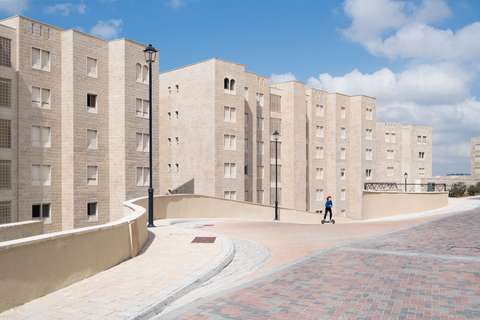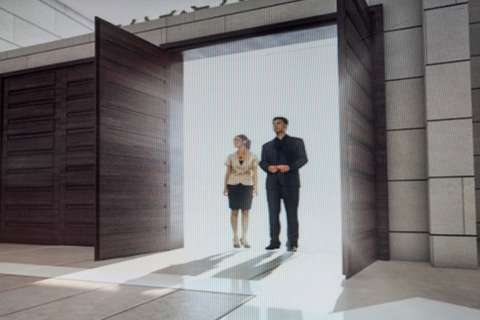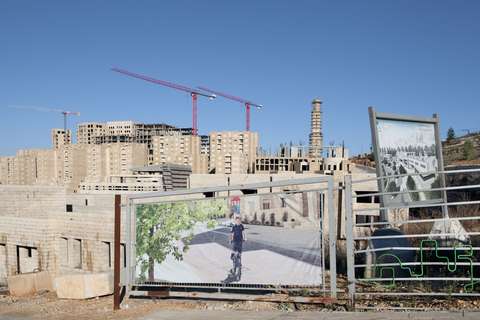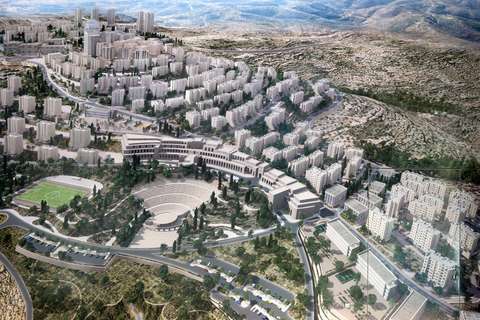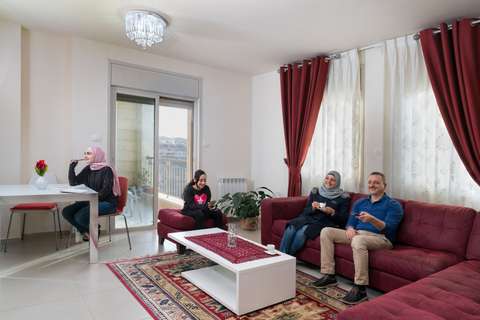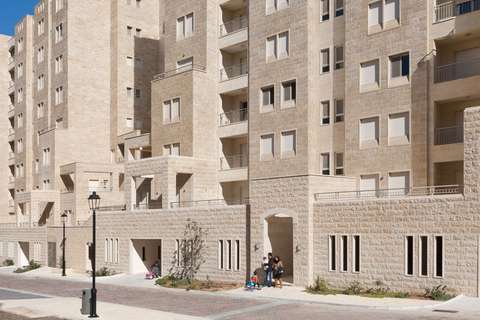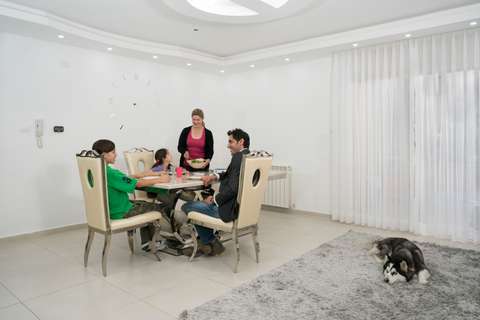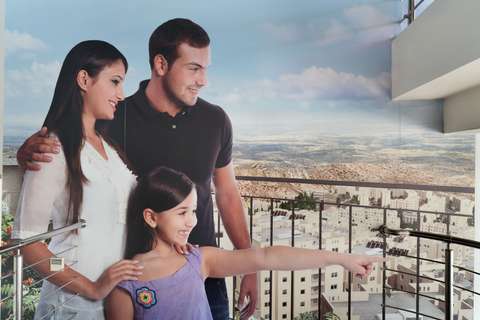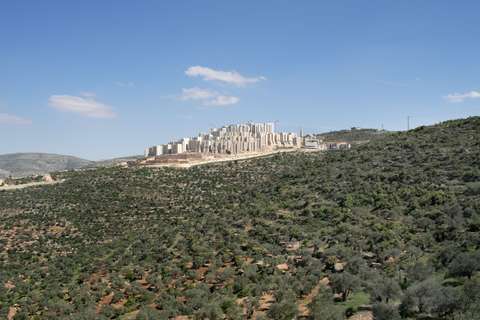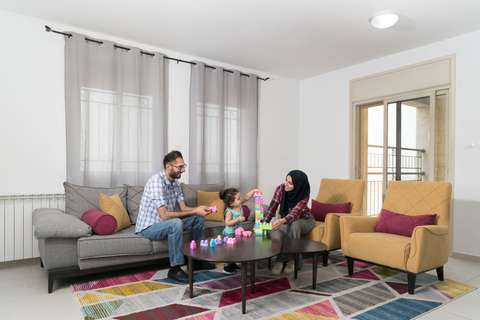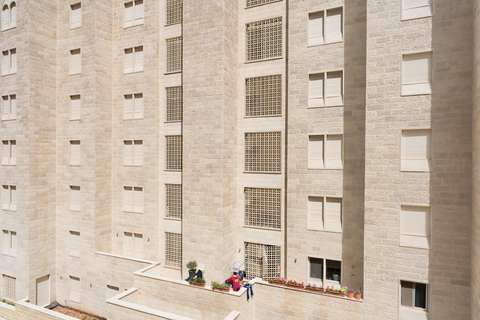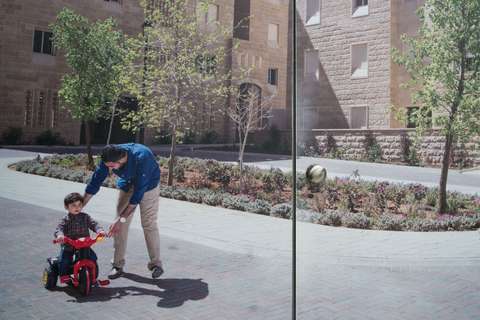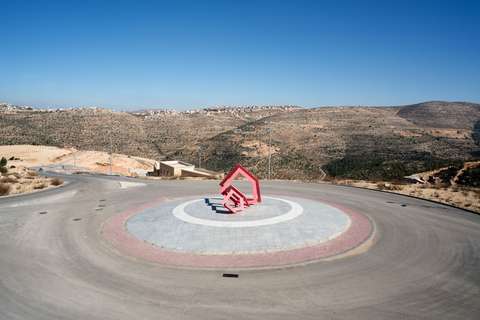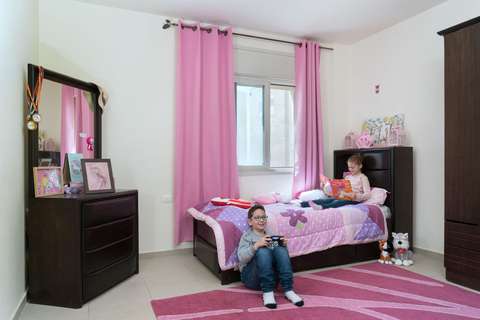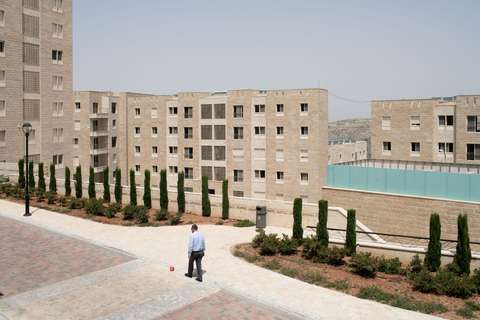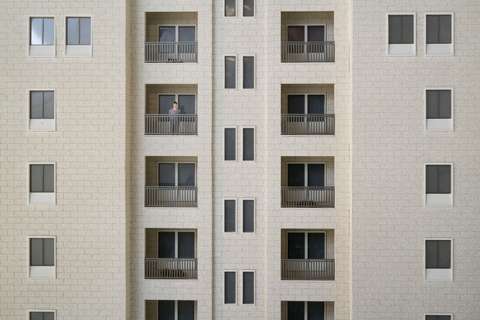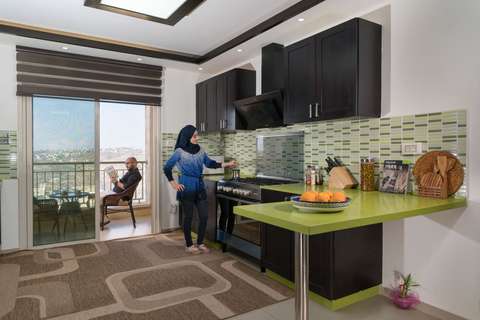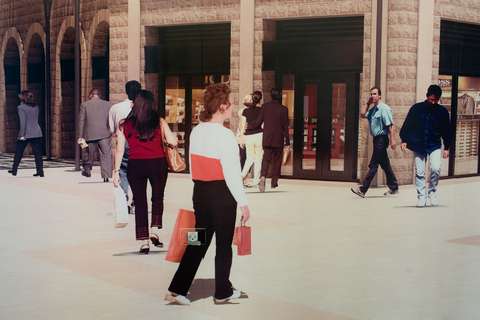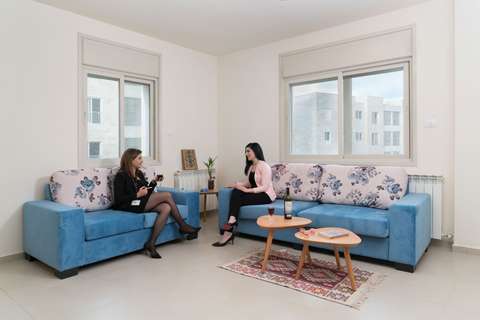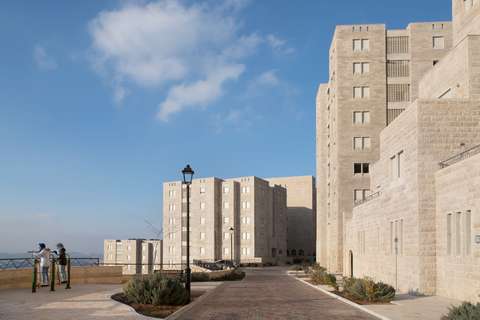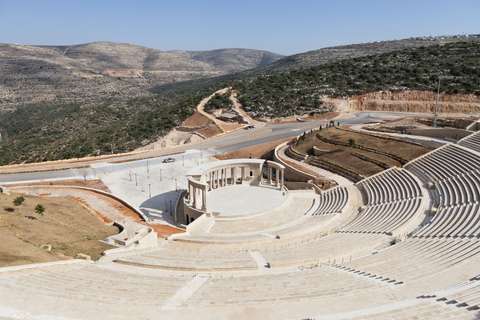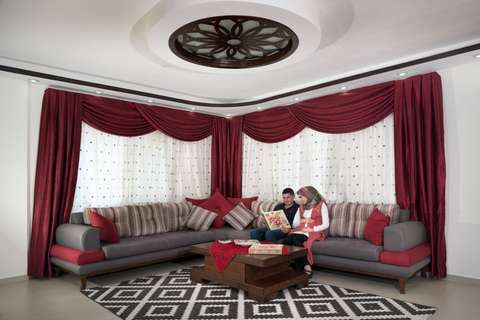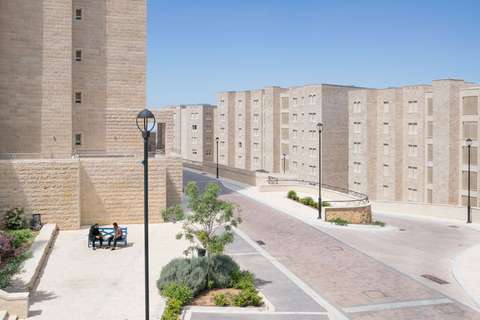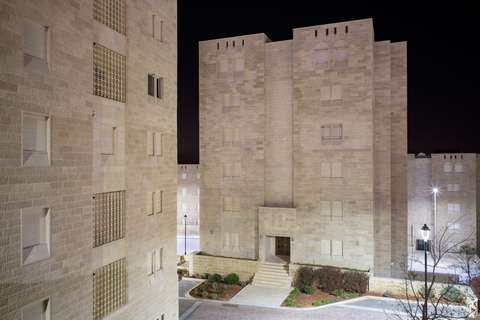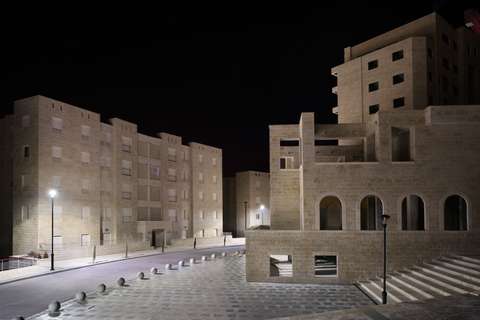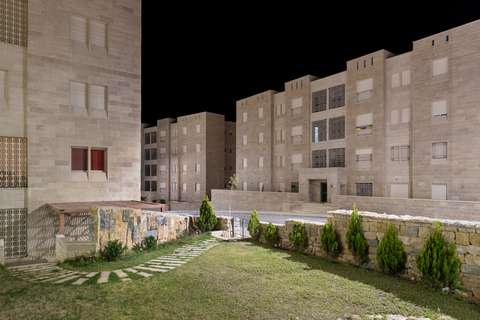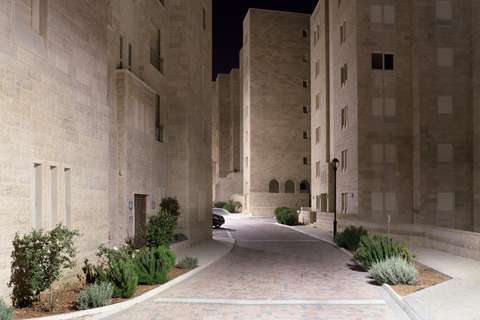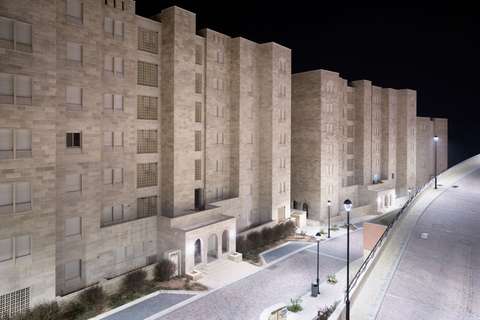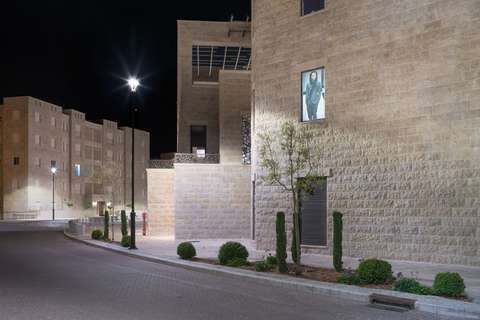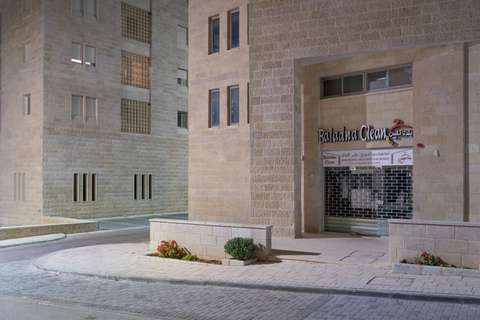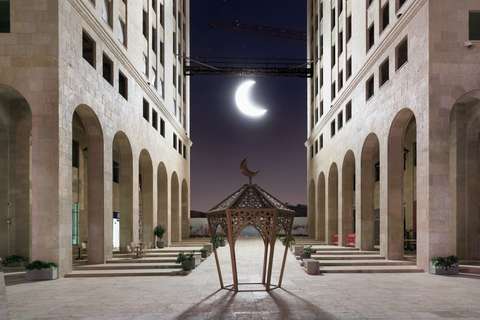BIRTH OF A UTOPIA
Rawabi is the first planned city in the West Bank built for Palestinians. It is 9 kilometers outside Ramallah and 20km from Jerusalem, built on a hill that was an olive grove until a few years ago. The city is a private real estate project, imagined and initiated by the Palestinian-American entrepreneur and billionaire Bashar Masrim and co-financed by Qatar. It is designed to house 40 000 people, but only 300 people are really living in Rawabi now. The project has received huge attention, both from the international and local media. It has been greeted with both enthusiasm and indignation by the Palestinian people. The way of life and the cultural model that Rawabi is selling strongly refers to western imagery, glamorizing a sense of modernity, civilization and progress, in radical opposition to the middle eastern tradition. After several decades of political resistance to the occupation, the idea of creating a prosperous and modern city, disconnected from the local realities is a political switch: Masri makes it clear “We will live like normal people, until the situation is normal”.
However, given the context of the Israeli occupation, this is a highly risky commercial project. The development has been on the threshold of bankruptcy even before the first residents started to move in. Like all Palestinian cities, Rawabi depends on the permission of Israeli authorities for the construction of roads, or water connection: the project was delayed by two years as the water permits were delayed, and consequently potential buyers pulled out. The number of inhabitants is still too low to cover the minimum costs of the basic services, that are provided by subsidiary companies of the constructor, which raises questions about long term viability of the city’s municipal services. The success of Rawabi also depends on whether the city can create jobs. Other large cities like Ramallah & Nablus are difficult to reach because of the occupation (checkpoints, limited roads etc...) and so the new city must find ways to attract companies to set up head offices there. So far, only subsidiaries of Massar have moved their HQ in Rawabi's buildings.
Governance is another challenge. Currently elected neighbourhood Home Owners associations work in parallel with a symbolic municipality, overseen by the construction company. Private management is preferred as public institutions are considered corrupted and and sectarian. This is a unique experiment, as people from across Palestine, from areas such as Hebron, Jenin, Bethlehem, Haifa or Jerusalem, all with different cultural habits and expectations of civil rights, come together for the first time to create a new neighbourhood.
No one can tell what Rawabi will look like in the future: a high-tech and crowded modern Palestinian city, or an empty shell, like some western suburbs built in Europe during the 70's...

